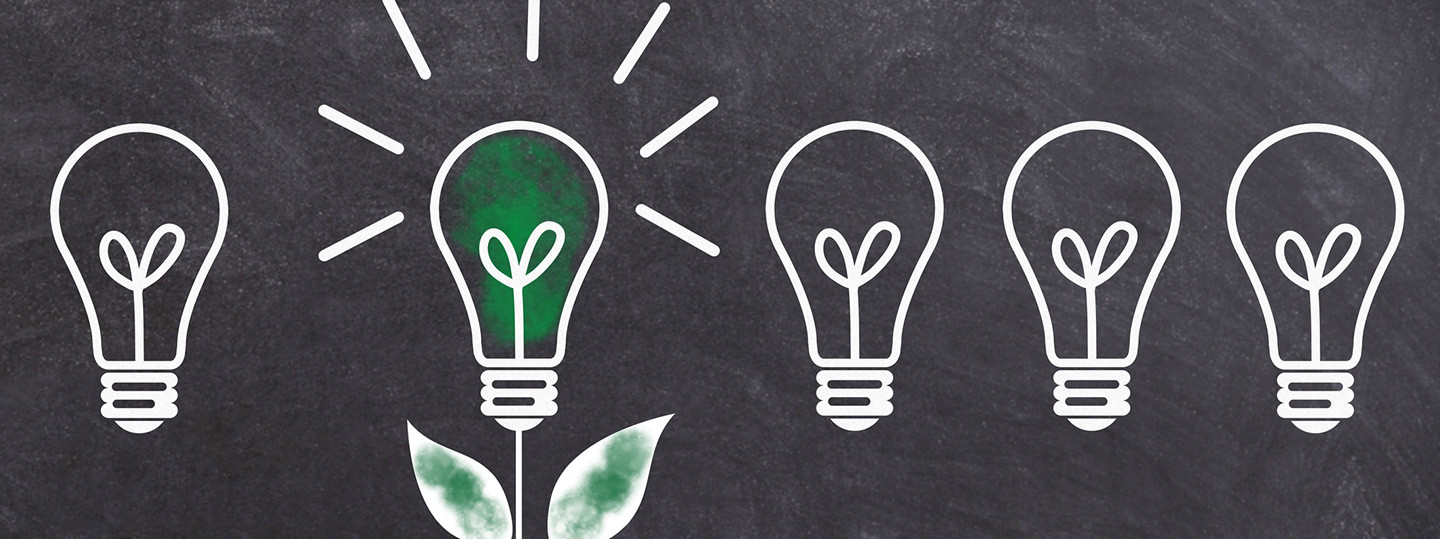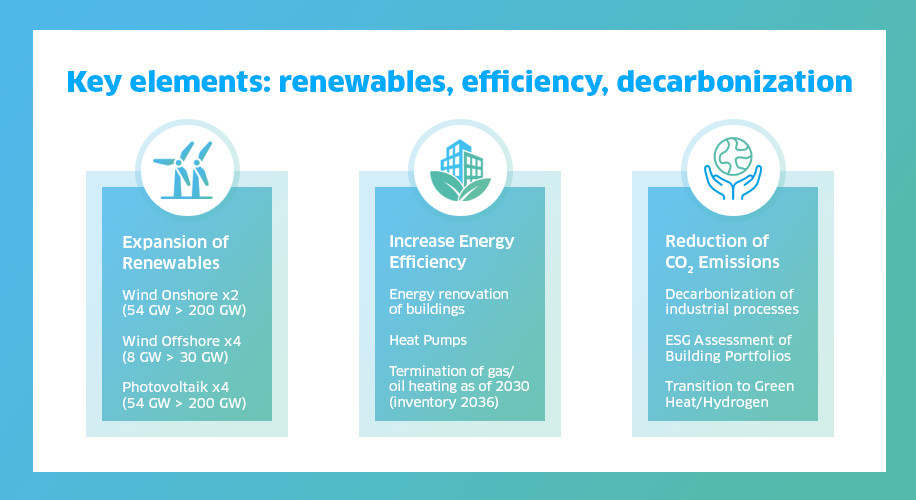
The future of the energy industry: This is the plan for Germany
The coalition agreement with the title "Dare more progress". Alliance for Freedom, Justice and Sustainability" brings together the at times very different views of the governing parties on energy policy. A new, ambitious line can be seen for the future of the energy industry. The faster expansion of renewable energy forms the foundation for a more climate-friendly power supply system. On the other hand, this electricity is also to be used to decarbonize other areas , such as the transport sector and the building sector.
The main points at a glance:
- The EEG-surcharge is to be abolished as early as 2023 in order to exempt the electricity price from state cost components. The lower price is intended to make electricity more attractive for use in other sectors.
- The withdrawal from coal is to be brought forward. At the same time, a transformation of the energy sector will take place through the accelerated expansion of renewable energies and the construction of new gas power plants.
- The bureaucratic hurdles are to be reduced, for instance with regard to planning and approval procedures for the faster expansion of renewable energies and the electricity networks required for transport.
- The heating transition is to be boosted with the help of numerous measures.
Early end for fossil energy and rapid expansion of renewables
The Federal Government is setting itself ambitious targets for the end of fossil energy. For example, the coal phase-out, which was previously planned for 2038, is to be brought forward eight years. In addition, the use of natural gas should end in 2045.
In order to meet the increasing energy demand of our society, a massive expansion of renewable energies is necessary. "The coalition agreement outlines a significant change in the entire energy industry in the coming years," says Dr. Frank Höpner, Member of the Executive Board of ENGIE Deutschland. "The electricity market will grow by ten to 20 percent, as renewable energies are to be used more for electric mobility and hydrogen production in particular," says the expert. According to the coalition agreement, the target is an 80 percent share of the German electricity mix by 2030. So far, only 65 percent had been targeted.
- Wind power: Two percent of the federal territory is allocated for the construction of wind turbines on land. Capacities can thus be roughly doubled in the coming years. In the offshore sector, an expansion of almost four times is planned. Capacities are expected to increase from eight to 30 gigawatts. The conflict between the protection of species and wind power expansion is also to be defused, and approval procedures and the repowering of old plants are to be simplified as well.
- Photovoltaics: photovoltaics continue to play an important role in the energy transition. The current installed capacity is expected to increase from 54 gigawatts to 200 gigawatts by 2030. That is almost a fourfold increase. To this end, the use of all suitable roof surfaces is envisaged. This should be mandatory for new commercial buildings. In addition, legal and bureaucratic barriers to grid connection procedures, certifications and remuneration rates are being reduced.
- Hydrogen: The construction of new gas power plants is to contribute to energy production in the future. These are preferably to be operated with climate-friendly and domestically produced hydrogen.
An ambitious heating transition is in the starting blocks
As far as the heating transition is concerned, a lot will happen in Germany. By 2030, half of Germany's thermal energy is to be generated in a climate-neutral manner with a high proportion of renewable energies. This means there is a lot of pressure for district heating systems to change.
The building energy law aims to raise the requirements for new buildings and for changes in the existing buildings. From 2025, for example, at least 65 percent of every newly installed heating system will be powered by renewable energy.
In order to create incentives for modernization, landlords should be made more responsible in the future. For example, the national CO2 price is being examined in order to partially impose it on landlords for the benefit of tenants. Until now, tenants had borne the full CO2 tax for the use of heat radiators and warm water. The introduction of the idea of rent partially including heating is also to create further incentives. The landlord is responsible for a minimal basic supply of heat. Only the additional consumption is paid by the tenants. For example, the landlord would have a good incentive to carry out energy-related renovation and modernization that reduces his costs for the basic heat supply.
Ambitious climate targets to which we are actively contributing
The coalition agreement makes clear: Our energy industry is facing a green and promising future – and a lot of work. "The biggest challenge will be the change of the gas and heating markets towards green energies," says Dr. Frank Höpner. "We at ENGIE Deutschland will therefore continue to focus on the future. We will invest in new projects and support our customers in the provision of green energy, the implementation of efficiency measures and the achievement of sustainability goals. With our entrepreneurial actions, we are making an indispensable contribution to society on the way to a climate-neutral future."
Our Expert











